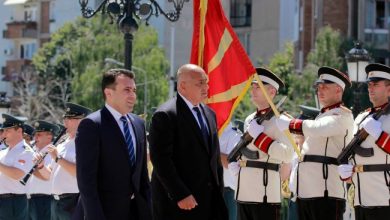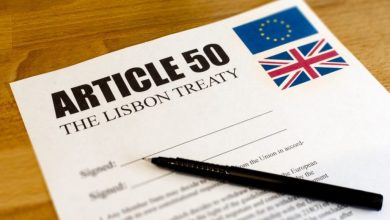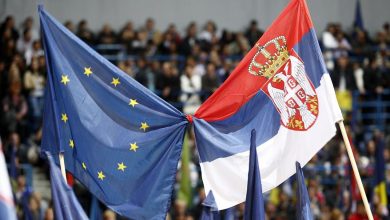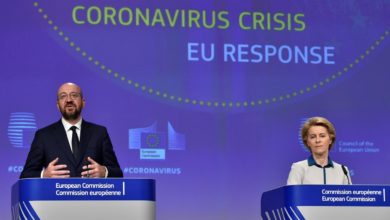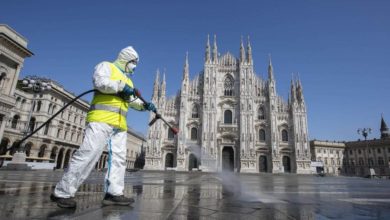
Today is the day. At the end of an arduous process that has lasted for almost four years – and has taken three Prime Ministers to complete – Britain will leave the EU at 11 pm GMT. I will not pretend that this is a happy day, neither for myself nor for millions of my fellow Britons, but, perhaps, it is a day of catharsis after such a long period of uncertainty and instability. That aside, on the day of Britain’s withdrawal, these are my final thoughts on the pro-EU movement we built, what it means to be European and what it means to be democratic.
The Morning After
In the run-up to the Brexit vote, I passionately campaigned for Remain in the London constituency of Lewisham & Deptford. I became firm friends with the core group with whom I had campaigned. In fact, almost four years later, we still keep in regular touch.
But it all seemed to be utterly pointless when a majority of British voters opted to leave the EU. I was in Palestine on 24th June 2016. I went for a sunrise walk around Bethlehem before coming back to the news notification: UK votes to leave EU by 51.9% to 48.1%. It felt like a body blow, a punch to the gut. In some ways, it felt as though the Britain that I thought I knew, that I thought I had grown up in, was gone. In fact, I was left wondering if it had ever even existed.
Je Suis Européen
At this precise moment in time, it may seem extraordinary that a Briton is saying that he feels European. In fact, at the time of the Brexit vote, I did not feel at all European. To my mind, a ‘European identity’ was simply something espoused by pro-EU politicians. How could anyone possibly feel any sort of connection to an entire continent?
A large part of my change of mind has been the response to Brexit from across the EU. That body blow, that sense of deep loss that I felt on 24th June 2016 has since been echoed across the entire union. As one person put it to me, “it’s as if my dull but sensible aunt has started drinking a bottle of vodka every night and staying out until 4 am” – blunt, but succinct. But the first time when I would feel a true sense of being European came on 23rd June 2018, the second anniversary of the Brexit vote.
The fledgeling anti-Brexit organisation People’s Vote organised a march in order to mark the day. My friends and I went as a group. To my astonishment, 100,000 of us filed through central London to Parliament Square. Alongside me were EU citizens, Britons and non-EU citizens alike. All parts of the EU and beyond were represented in central London that day. We were a single European entity. We were not there to overturn the vote. We were not attempting to disrespect or push aside Leave voters. We were there because we wanted more democracy for our country.
Once we got to Parliament Square, MPs, high-profile grassroots activists and former Leave voters who had changed their minds addressed a crowd far larger than any of us could have realistically anticipated. None of us could then have known, but 100,000 would turn out to be the smallest attendance at a People’s Vote march.

A Deafening Chorus
On 15th January 2019, MPs resoundingly rejected Theresa May’s dreadful Brexit deal. A large part of the scale of the rejection was due to grassroots Remainers, backed by People’s Vote, winning over undecided MPs. People’s Vote were coordinating the various factions of the Remain movement into one voice – and it was loud. I was at rallies in Parliament Square when the deal was rejected for the first two times, surrounded by my fellow Europeans as we cheered the rejection of May’s small-minded, nasty deal. I was at home with my staunchly Remain parents when Brexit was twice delayed. We celebrated with a cheer, some Belgian chocolate and some French wine. But the best was yet to come.
On 23rd March 2019, mere days before Brexit was originally scheduled to happen, roughly 1,000,000 people descended on central London. It cannot be known for certain, but the Put It to the People march might well be the largest in British history. This was democracy at its finest. These were, like me, ordinary people – many of whom had never been politically active before – who just wanted to be heard. This was democracy and it was beautiful to see. Sadly, I could not make it to that march as I was in Kiev, but to see the images of it being beamed across the world made me incredibly proud of the movement that Remain had built – from the mere 50 who had attended the first post-referendum rally to 1,000,000 in just two-and-a-half years.
Democracy is not a moment in time. It is not a “once-and-forever” beast. It is not immutable. Democracy is fluid. It is an ongoing and ever-evolving process. 23rd June 2016 was a moment in time. 1,000,000 people marching for their country and their collective future was the fluidity. Seeing those images broadcast whilst I was in Ukraine made me understand this. Democracy is an evolution, not an event.
Ultimately, we were not successful. In the autumn of 2019, we came agonisingly close to getting a people’s vote. But then the election came. All of that was swept aside. Brexit became a certainty. Much like Brexit itself, there is no one root cause for the election result being what it was, but there are a lot of “what ifs”.
The Fight Goes On
We did not get to put Brexit back to the people. It may seem as though we in the Remain movement have just wasted four years of our lives – but I beg to differ. The world and, more importantly, our European family now know that millions and millions of Britons are being dragged out of the EU against our will – not to mention two of the UK’s four nations. It is a great irony that a country that is leaving the EU is home to the largest grassroots pro-EU movement anywhere in Europe.
The message from this is simple but clear: politics may mean that the UK is turning its back on the EU, but many millions of Britons are not. Many millions of us are proudly European. On the morning of 1st February 2020, I am sure that a ‘re-join’ movement will begin. It will grow, it will be beautiful and I hope that it will be successful.
I hope that ‘Re-join’ succeeds where Remain could not. I hope that those who will doubtlessly work tirelessly on it are successful in taking Britain back into the EU. But I will not be a part of it. Quite simply, I am too tired of fighting and not succeeding. ‘Re-join’ will require new life, new faces and breaths of fresh air. When it finds these, it will become unstoppable – and Britain shall be back in its rightful place in our family of nations once more.

